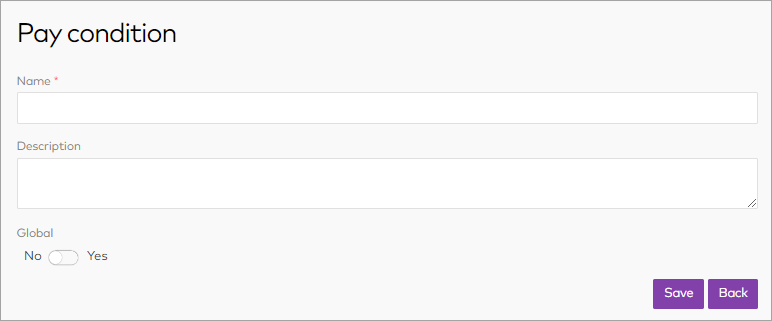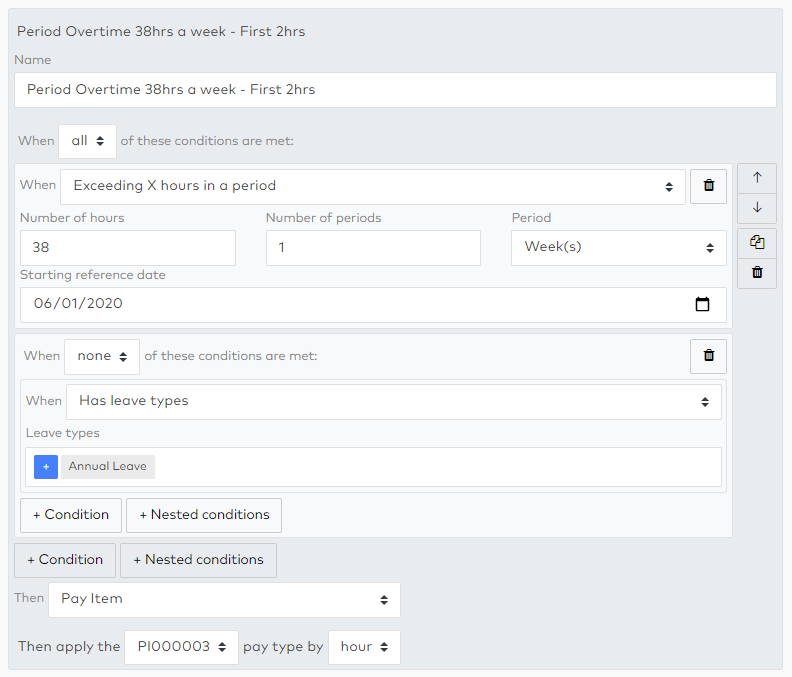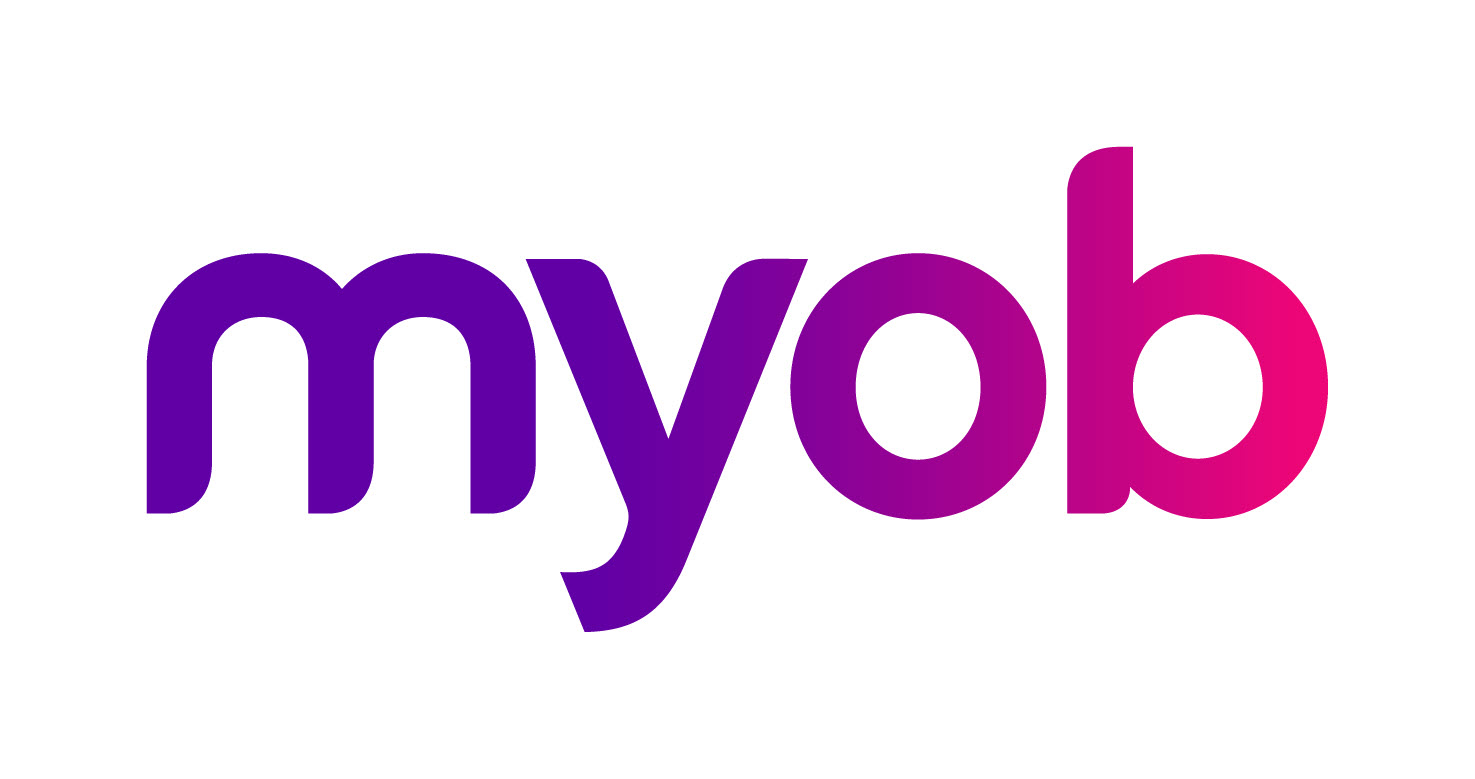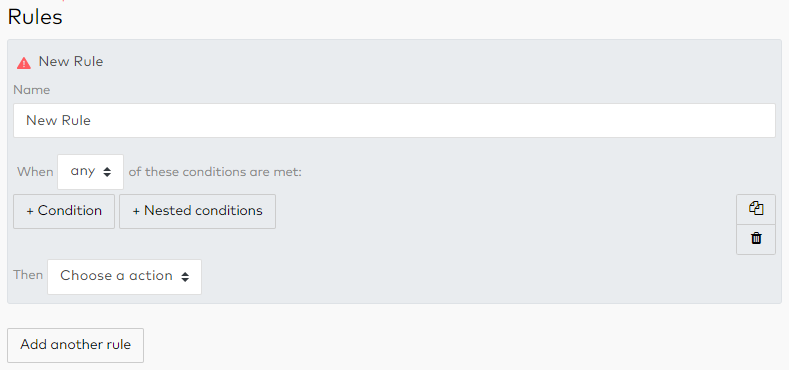Setting up pay conditions
Pay conditions let you interpret time data and apply Award or EBA conditions to create payroll transactions, for example, applying the correct payment for overtime or for working on a weekend.
A pay condition is comprised of versions, that apply to specific time periods. A version is made up of rule blocks, which contain conditional arguments that control how your employees are paid.
Be careful
Pay conditions are usually set up by MYOB Advanced Workforce Management consultants. Contact your support person if you need to change your pay conditions and aren't sure what to do.
Adding a new pay condition
- Go to Management > Settings > Pay Conditions.
- Click the Add ( + ) button.
- Enter a name and description for the pay rule, then click Save.

- The new rule is added to the list on the Pay conditions screen.
Editing and deleting pay conditions
To edit a condition, click Edit (
To delete a condition, click the Delete button on this screen, then again on the confirmation window that appears.
Managing pay condition versions
Managing pay rule blocks
Rule conditions
A rule can have more than one condition, and you can choose an operator to apply to the conditions. If the conditions are met, the selected action will be applied.
The table below describes conditions that you can add to a rule block.
| Condition | Description |
|---|---|
| Timesheet has specific types | Optionally apply rates based on whether the timesheet is a scheduled shift, unscheduled shift, or leave. |
| Worked Hours | Apply a different rate after X consecutive hours (the value for X is set as part of the rule). E.g. pay an overtime rate if the shift is more than 8 hours. |
| Under contracted hours | Specify a payment based on whether the employee is under contracted hours or over contracted hours. Contracted hours need to be set on employee's standard hours or the company default standard hours. |
| On specific days | Apply a specific rate on a specific day (or group of days). E.g. apply weekend rates if the day on the timesheet is a Saturday or a Sunday. |
| Timesheet matches an above rule | This is used to test whether any of the previous rules have been matched and to apply rules accordingly. A typical implementation would be to test if no specific rules have matched already, then apply ordinary hours/base rate. The order of this rule in relation to other rules is important as it checks the rules above it. The example below can be interpreted as "if it's not on a Sunday or not on a Public Holiday then apply normal hours". |
| Exceeding X hours in a period | Allows the user to set a limit on the number of hours worked in a particular period. E.g. if someone works more than 40 hours in a week the remaining hours can be paid at a higher rate. |
| Top up timesheets to X hours | Some awards have a minimum shift length for a timesheet, so for example this rule will ensure that all timesheet instances are paid for at least two hours even if the actual timesheet is less than that. |
| Insufficient hours between prior timesheet | Some awards require a minimum number of hours between worked shifts, or a penalty rate is applied. Here for example we can set a rule like, "if the break between the end of one timesheet and the start of the next is less than 12 hours then apply double-time for the second shift". |
| Employee has a pay tag | Apply a different rate depending on the assigned pay tag. |
| On a public holiday | The rule is triggered if the timesheet falls on a public holiday (you can apply public holiday rates). |
| Between certain times | Typically used for setting after hours rates, e.g. between 10pm and midnight or between midnight and 6am apply the night rate. |
| Has specific work types | Apply different payment types based on the work type (e.g. a specific rate for public-holiday-not-worked). |
| Has leave types | Apply different payment types based on the leave type (e.g. a rule doesn't apply to Annual Leave). |
| Within employees standard hours | Apply if the hours are between the employee's standard hours - see How do I add Standard Hours to an employee? |
| Within the rostered hours | Apply if the hours are between the employee's rostered hours. E.g. apply normal hours for any hours within employee’s rostered hours. This condition can also be used with the “None” operator to create a rule that pays overtime when employee works outside rostered hours. |
| Timesheet has locations | Apply a specific rate on a specific Location. E.g. apply an allowance rate if the employee has worked in a specific Location. |
| On specific date | Apply a specific rate on a specific date. |
You can specify the action to take when the conditions are met by selecting an option from the Then dropdown:
- Pay item - The action will apply a pay item to the employee's pay. Select the pay item and the metric to pay by (per hour, per time or per match).
- Minimum Length - the action will ensure that the employee's shift is of a minimum length. Enter the minimum length into the Number of hours field.
The rule will be applied when "All", "Any" or "None" of the conditions in the rule block are met, depending on the selected operator. You can add multiple groups of conditions, as in the example below:

Once you have set up your pay rules you can assign them to employees - see Assigning pay conditions to employees

